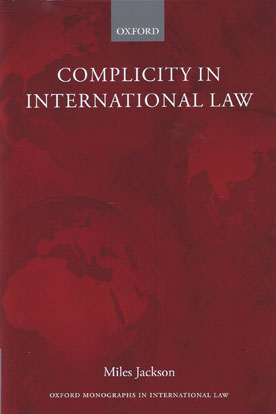
This book examines how international law prohibits state and individual complicity. Complicity is a derivative form of responsibility that links an accomplice to the wrongdoing of a principal actor. Whenever a legal system prohibits complicity, it must address certain questions as to the content and structure of the rules.
To understand how international law answers these questions, this book proposes an analytical framework in which complicity rules may be assessed and defends a normative claim as to how they should be structured.
Anchored by this framework and normative claim, this book shows that international criminal law regulates individual complicity in a comprehensive way, using the doctrines of instigation and aiding and abetting to inculpate complicit participants in international crimes. By contrast, international law's regulation of state complicity was historically marked by an absence of complicity rules.
As that traditional normative structure has evolved, so the possibility of holding states responsible for complicity in the wrongdoing of non-state actors has emerged. More and more, both the wrongs that international actors commit, and the wrongs they help or encourage others to commit, matter.